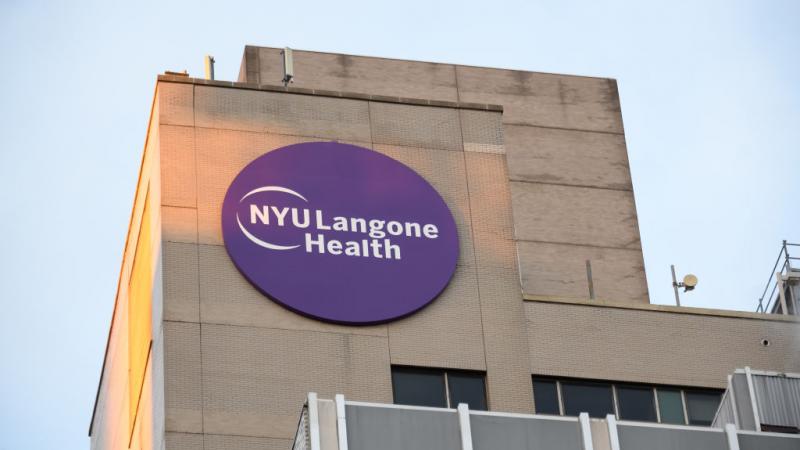UK's only dedicated child sex change clinic to close
"You can't even describe how much damage they caused," said former patient Keira Bell, who challenged the unit in court, claiming she had been too young to consent to the treatment that began her female-to-male transition as a 16-year-old.
The Gender Identity Development Service (GIDS) at the Tavistock Centre in London, which has been run by the British National Health Service since 1983, is to close next spring, following widespread concern raised by an interim report by pediatrician Dr. Hilary Cass that found the controversial child unit left young people "at considerable risk."
An earlier internal review carried out by the Tavistock Trust's medical director, Dr. Dinesh Sinha, in spring 2019, attempted to allay criticisms that had been raised by staff members and clinicians, 40 of whom are alleged to have left in the previous three years.
The trust supported Sinah's report, claiming it was "confident that it fairly addressed the issues raised." Others felt it was more of a whitewash.
An investigation carried out by BBC Newsnight revealed many staff felt that when they raised concerns they were seen as the problem. "When I raised concerns, I was told that I had to toe the line, or I would never progress in my career," one confided.
In October 2020, the Care Quality Commission, which is the independent regulator of health and adult social care in England, inspected the facility and rated it "inadequate." Safety levels and services "required improvement," while its leadership and responsiveness to people's needs were "inadequate," according to the inspection report.
During that same year, one of its former patients, Keira Bell, brought a court case against the unit, claiming she had been too young to consent to the medical treatment that began her female-to-male transition as a 16-year-old and that her decision should have been challenged more.
Although she won her initial case, it was overturned on appeal due to the Gillick competency legal precedent that "it was for doctors and not judges to decide on the capacity of a person under 16 to consent to medical treatment."
This was established following a 1980s legal ruling that a doctor can give contraceptive advice or treatment to young people under 16 years old without parental consent.
Even though she lost her case, Bell continues to campaign against the use of puberty blockers, which are irreversible and for which there are no long-term studies into their side effects.
Bell finds some solace at the decision on the GIDs unit. "The fact that it's closing down is symbolic because what they've done there has been despicable," she said. "These are people's lives. My whole life has been affected, and I'm not getting any relief from the medical issues I'm having. You can't even describe how much damage they caused."
In Bell's case, the damage included a double mastectomy.
Another patient, Ritchie Herron who is now 35, accuses doctors of not warning him of the side-effects of sexual transition. He claims that since he had his genitals removed, "urinating is now a painful process that can take up to 10 minutes." He is suing the NHS for rushing him into making "the biggest mistake of his life."
Kemi Badenoch, a recent candidate to become Conservative Party leader, told GB News: "I'm so happy that it has closed ... I listened to people who had received treatment there, and the stories were harrowing."
She added: "What happened at Tavistock was a very serious child welfare failure. What is amazing is how long and how much work it took to resolve the problem."
The former government minister claims that former ministers "created an LGBT advisory panel that was clearly suffering from groupthink" and which included "a small minority of activist officials." She accuses her predecessors of being "too scared to challenge their staff."
Badenoch later told the Daily Express that GIDS was initially "presented to me by government officials as a positive medical provision to support children." She was also told it would be "inappropriate" for her to speak to Keira Bell and medical whistleblowers such as Dr. David Bell, who once worked at the center as a consultant psychiatrist.
"Some children have got the double problem of living with the wrong treatment, and the original problems weren't addressed — like trauma, depression [and] large instances of autism," Bell told the BBC:
But the closure of the GIDS unit does not mean that the life-changing and irreversible practice will stop, as demand for the service has grown from under 250 referrals in 2011-12, to 5,000 in 2021/22.
The NHS England website still offers parents a broad range of signs to look out for in their children, including conditions that many teenagers would relate to.
"People with gender dysphoria may have changed their appearance, their behaviour or their interests," it states. "They could also have low self-esteem, become withdrawn or socially isolated, suffer depression or anxiety, take unnecessary risks, and neglect themselves."
Even as GIDS closes at Tavistock in spring 2023, new centers will become operational. One will be based in London and the other in the northwest of England, and both will work in conjunction with leading children's hospitals. A further three early adopter hubs are planned.
The Gender Identity Development Service clearly hopes it will play a role. "The expertise that resides within the current GIDS service will be critical to the successful formation of these early adopter services and providing continuity in patient care," a GIDS spokeswoman said recently.















